Introduction: The Queen Behind the Tomb
Nefertari, whose name translates to “The Most Beautiful One,” was not only the cherished wife of King Ramses II but also a key figure in ancient Egyptian culture and diplomacy. Known as Nefertari Meritmut, which means “Beloved of Mut,” the powerful goddess, she is immortalized alongside other legendary Egyptian queens like Cleopatra, Nefertiti, and Hatshepsut. Though her ancestry remains a mystery, Nefertari’s influence and legacy resonate strongly through the ages.
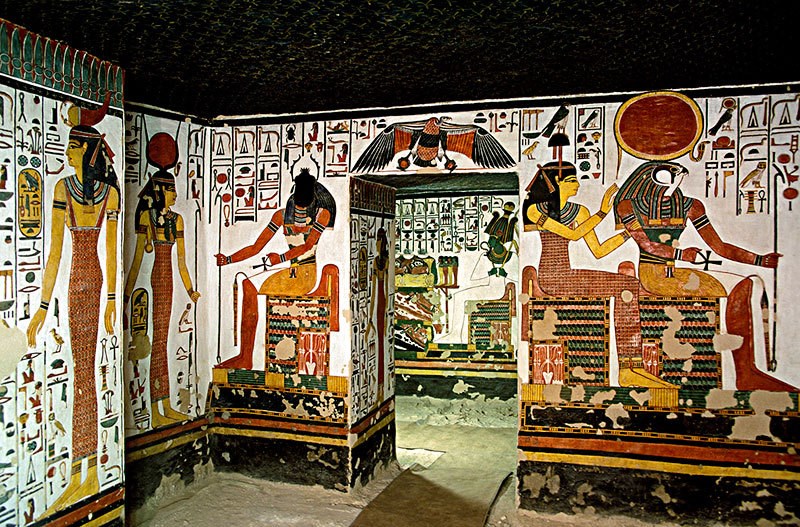
Nefertari’s Role in Diplomacy and Power
Though Nefertari did not rule as a pharaoh, she played a critical role as the first of Ramses the Great’s many wives. Her influence extended far beyond courtly affairs; she was actively involved in diplomatic efforts, most notably with the Hittites, Egypt’s former enemies. Historical records, such as her letters, reveal her engagement in peace negotiations that solidified her standing as a key political figure. Nefertari’s significance was evident not only in her titles and actions but in the monumental tomb that was constructed for her.
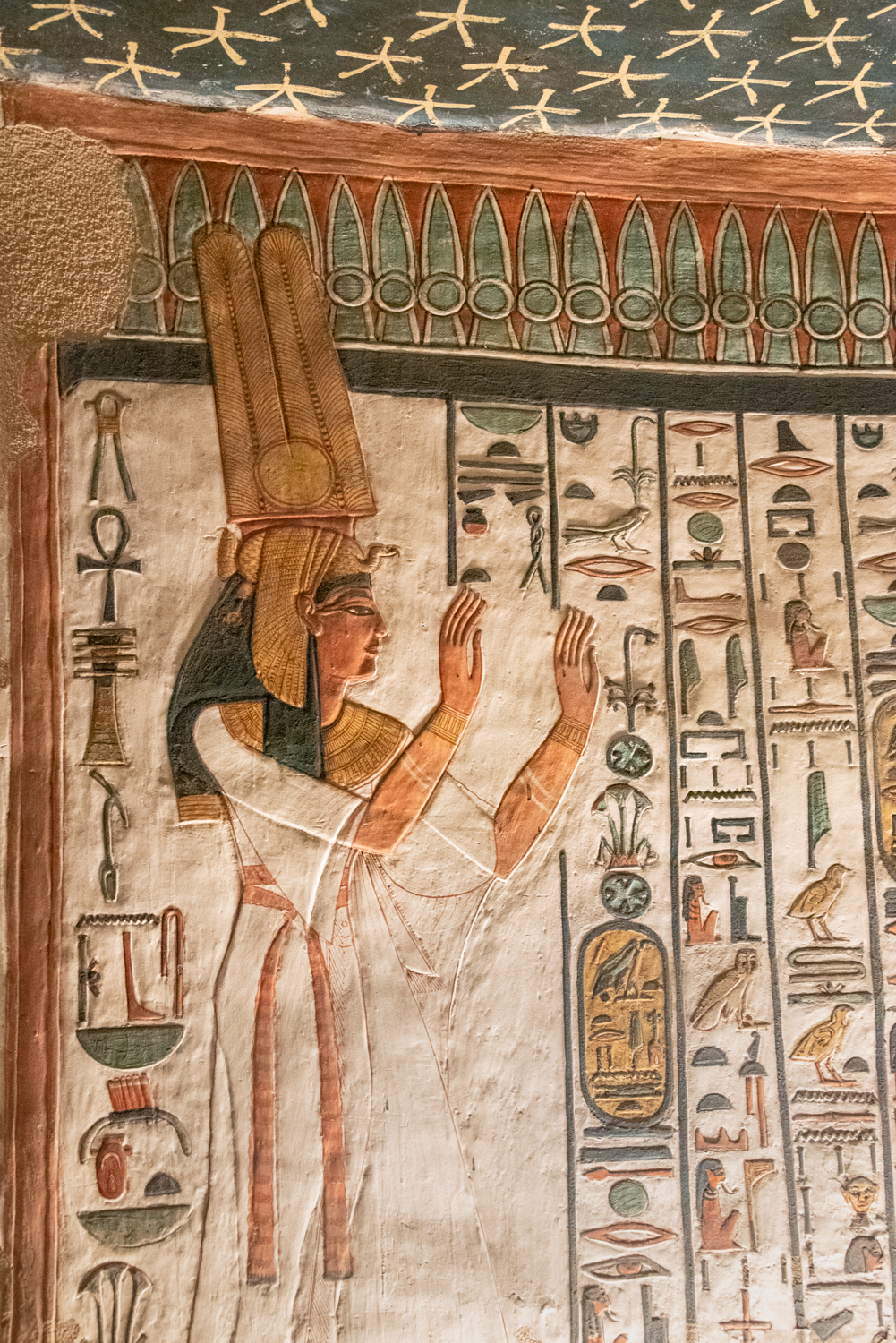
The Tomb of Nefertari: QV66 in the Valley of the Queens
Located in the Valley of the Queens, Nefertari’s tomb, designated as QV66, is one of the most stunning and well-preserved burial sites in Egypt. The tomb serves as a breathtaking testament to her status, showcasing the highest level of craftsmanship and artistry of ancient Egypt. From the moment of its discovery, it was clear that this tomb was unique—not just in terms of its grandeur but also in the quality of the artwork that adorned its walls.
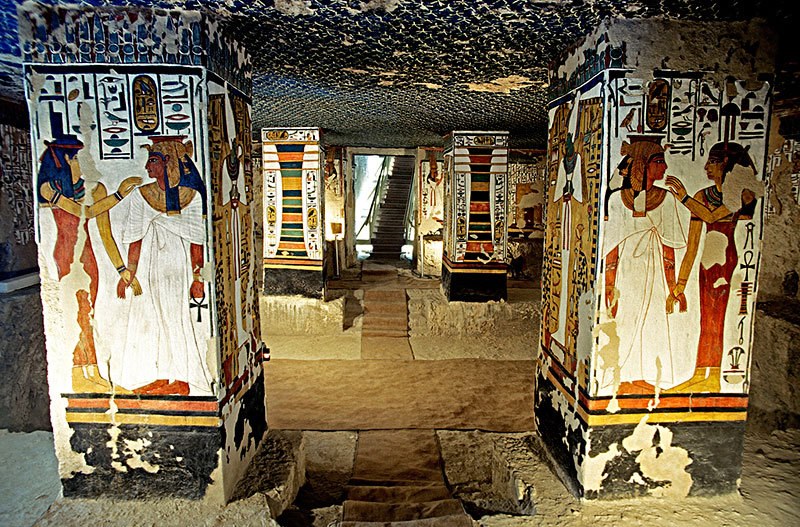
The vibrant, detailed wall paintings inside the tomb illustrate Nefertari’s journey into the afterlife, highlighting her spiritual transformation. Gods and goddesses such as Osiris, Anubis, and Hathor are depicted guiding her through the underworld, offering divine protection. These scenes reflect the Egyptians’ deep belief in the afterlife, and the care taken in decorating her tomb indicates the high regard in which Nefertari was held.
Masterful Artistry and Preservation
The tomb’s interior is a marvel of ancient Egyptian artistry, with vivid, well-preserved colors and intricate hieroglyphs that provide a window into Nefertari’s world. The depictions of her finely detailed clothing and majestic jewelry capture the elegance and sophistication of the royal court. The tomb’s architectural and artistic design make it a true masterpiece, often referred to as the “Sistine Chapel of Ancient Egypt.”
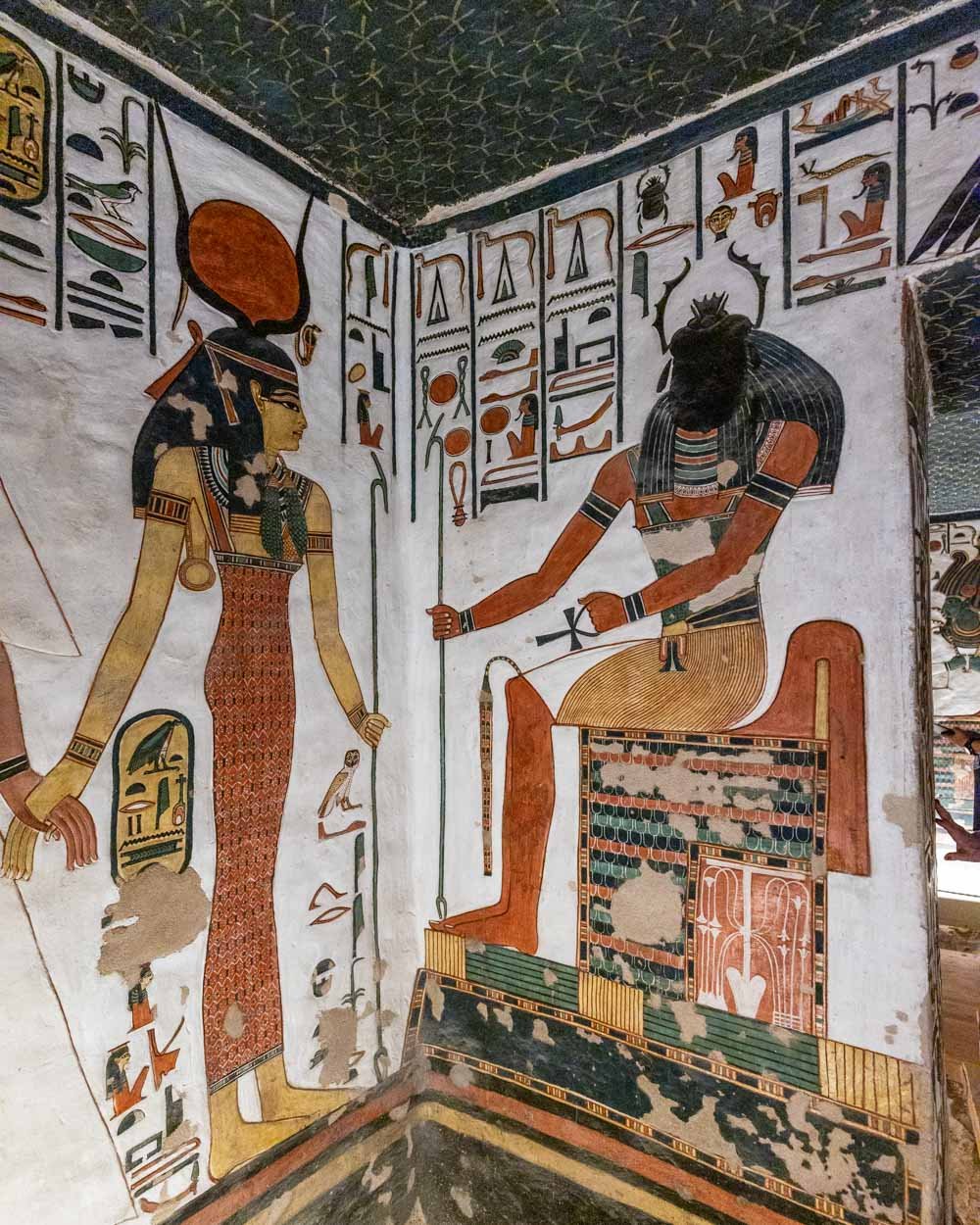
The murals also incorporate religious texts from the Book of the Dead, which were essential for ensuring the queen’s safe passage into the afterlife. The quality of these illustrations speaks to the level of craftsmanship employed and the importance of Nefertari’s burial. The fact that much of this artwork has survived for thousands of years is a testament to both the skill of the ancient builders and the efforts of modern preservation.
A Symbol of Egypt’s Artistic Legacy
Nefertari’s tomb is more than just a resting place—it is a symbol of Egypt’s grandeur and a testament to its sophisticated artistic and architectural achievements. As one of the best-preserved and most elaborately decorated tombs in Egypt, it continues to awe visitors and scholars alike. The tomb’s beauty and historical significance highlight Nefertari’s lasting legacy as a queen who not only stood alongside one of Egypt’s greatest rulers but also left her own indelible mark on history.
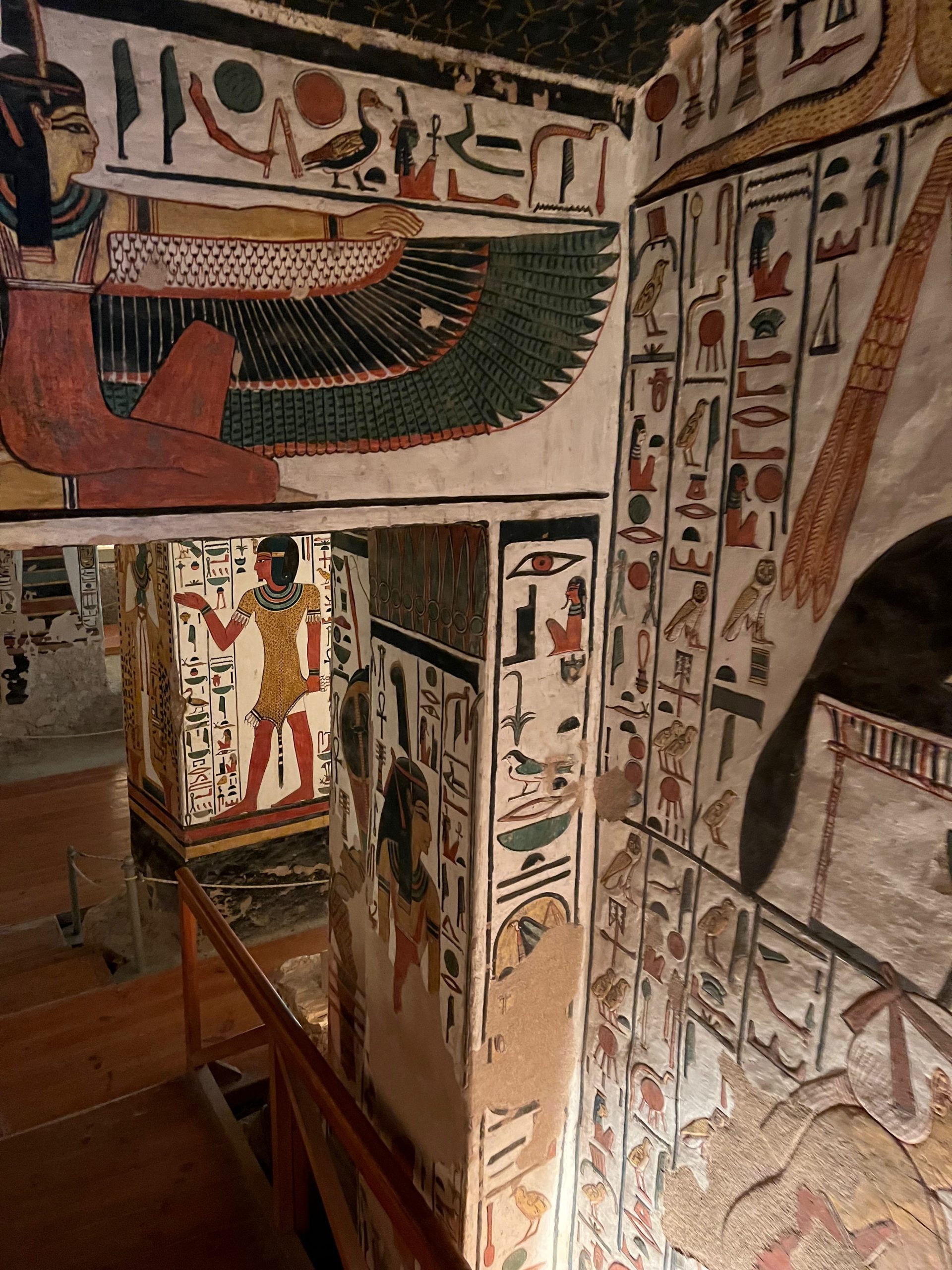
Conclusion: Nefertari’s Eternal Influence
The Tomb of Nefertari, with its stunning artistry and vibrant depictions, serves as an enduring tribute to one of Egypt’s most beloved queens. While Nefertari’s contributions to Egyptian politics and her role as Ramses II’s favored wife are well-documented, it is her tomb that stands as a lasting reminder of her importance in the ancient world. As one of the most beautiful and culturally significant monuments in Egypt, the tomb continues to draw admiration, ensuring that the legacy of Nefertari will remain alive for generations to come.

